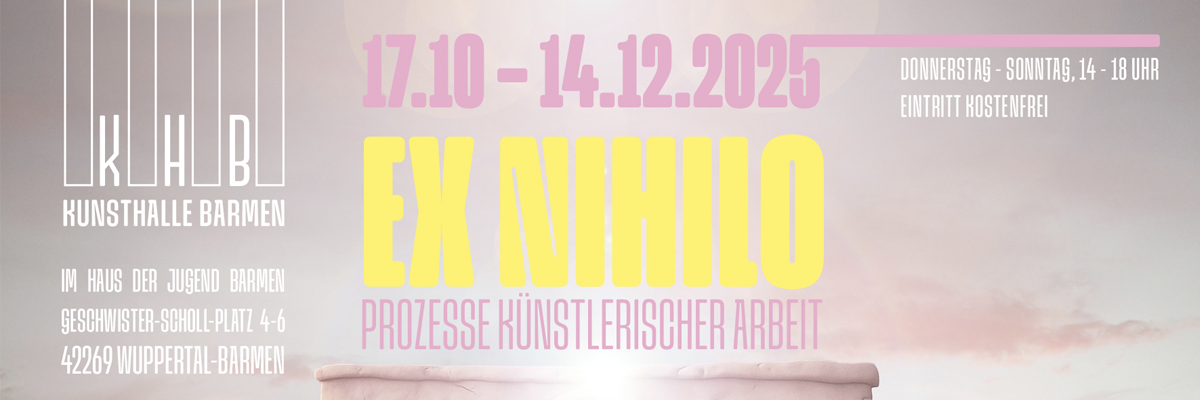
Madeleine Andersson
Degenerative Knowledge Production
Project Info
- 💙 O–Overgaden Institute for Contemporary Art
- 💚 Vera Østrup
- 🖤 Madeleine Andersson
- 💜 Rhea Dall
- 💛 David Stjernholm
Share on
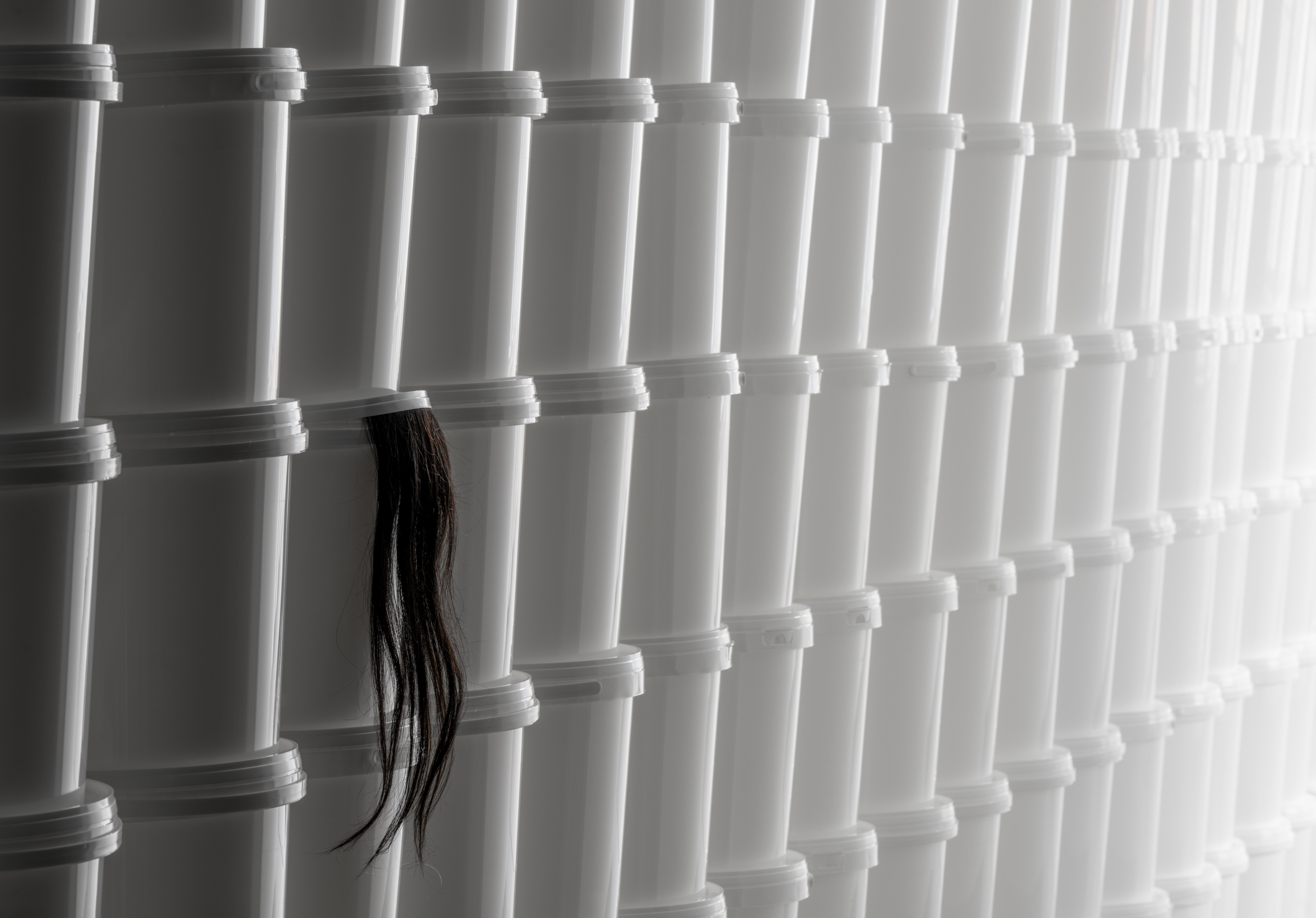
Advertisement
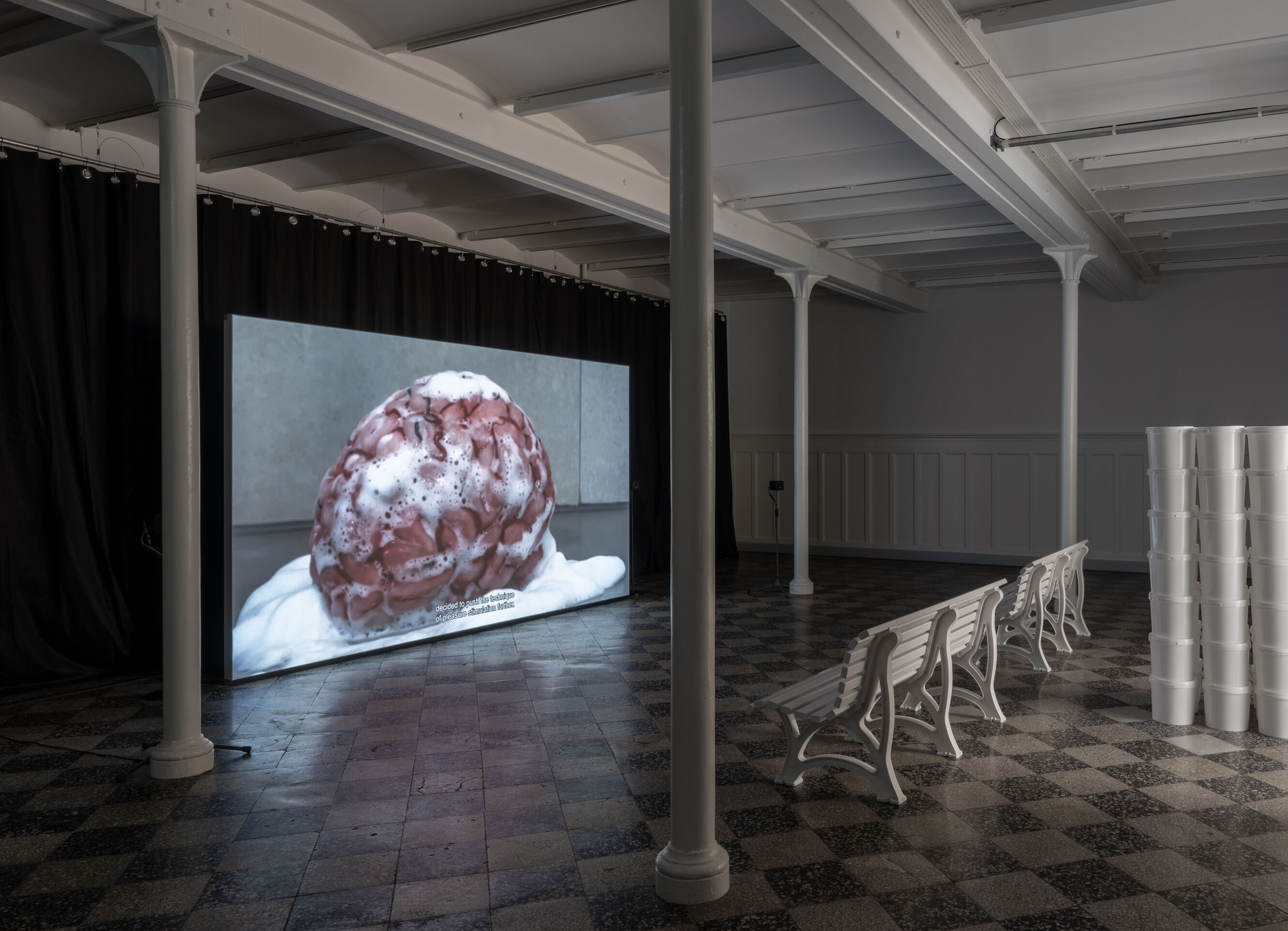
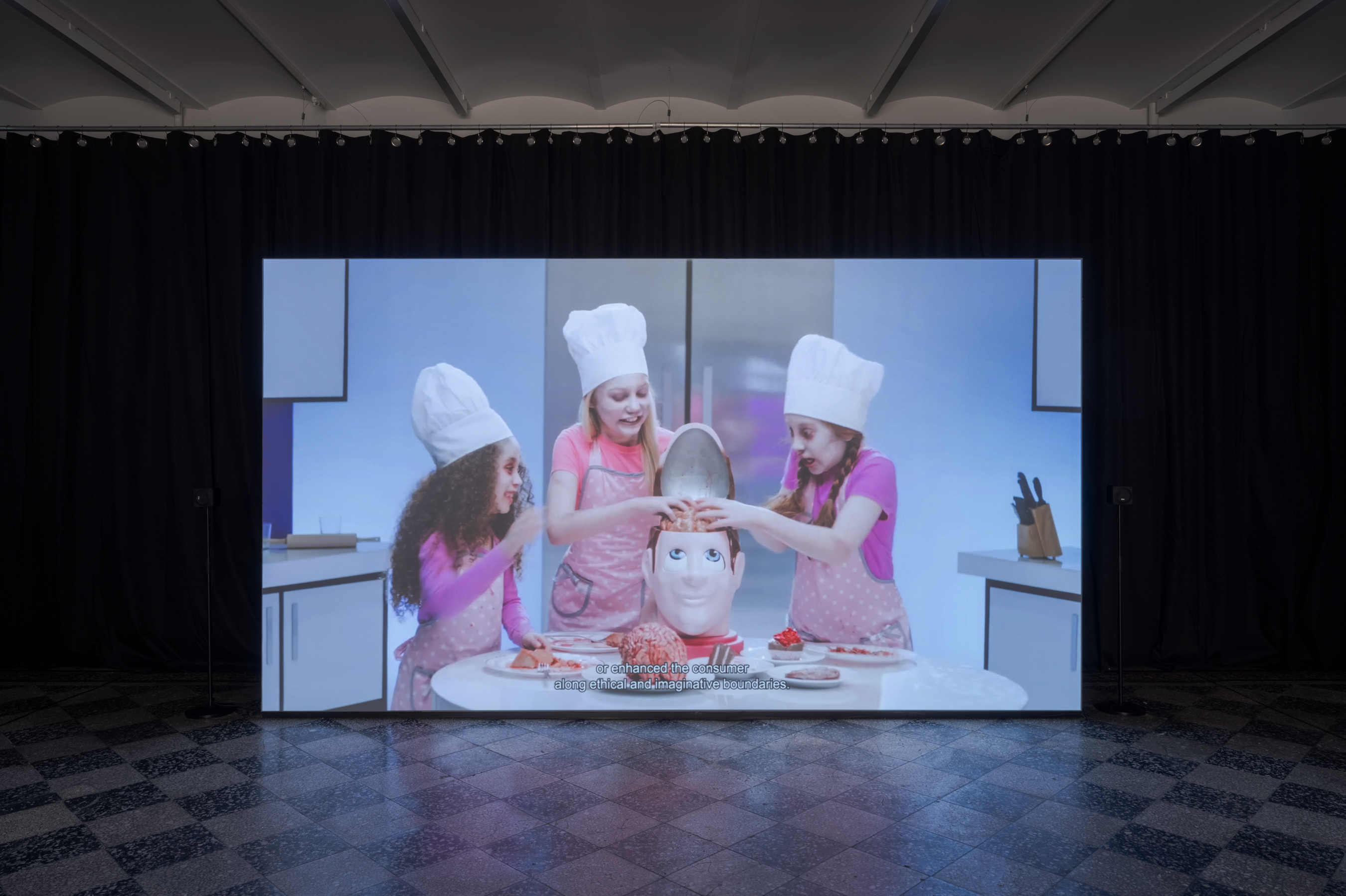
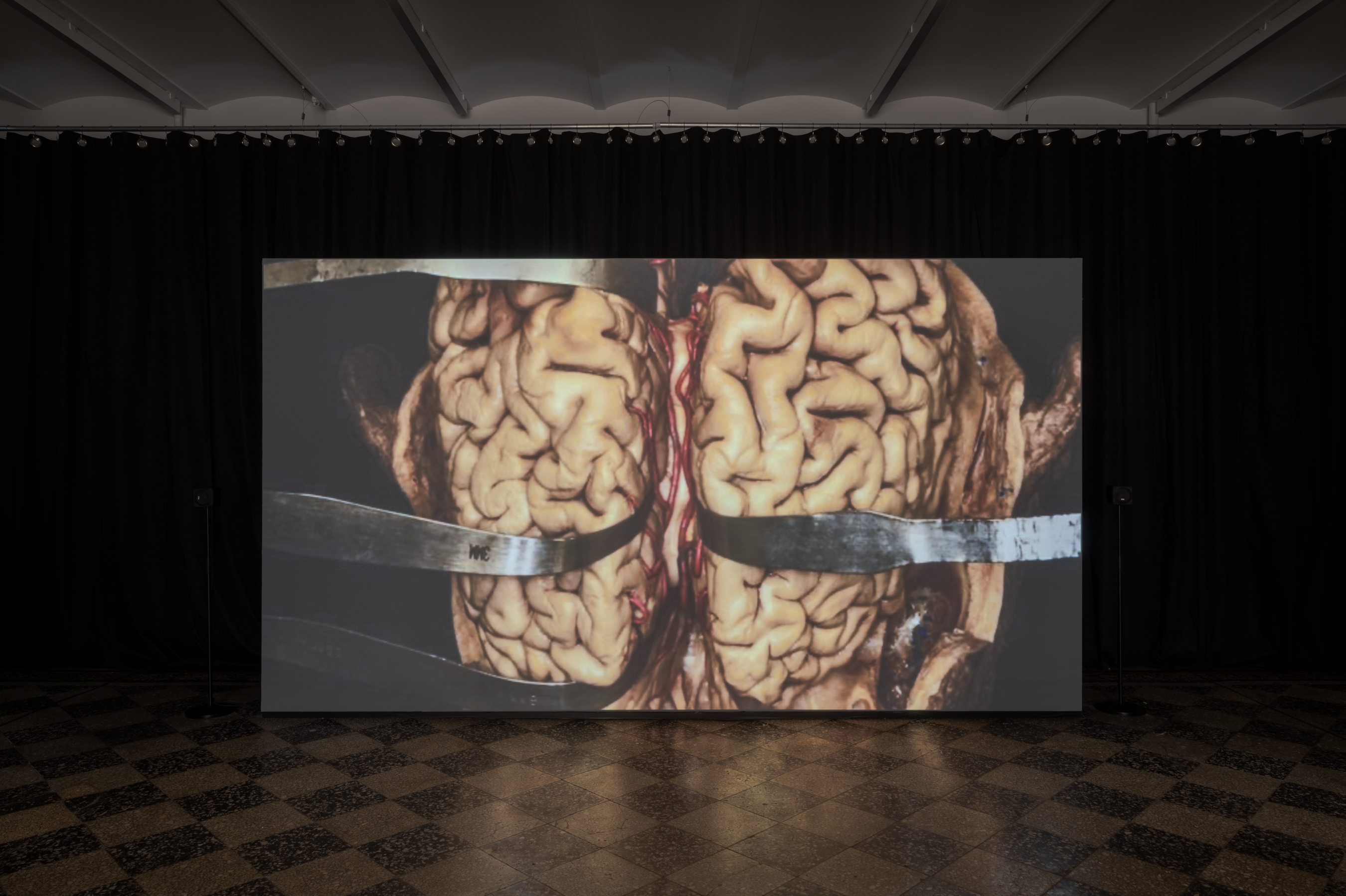
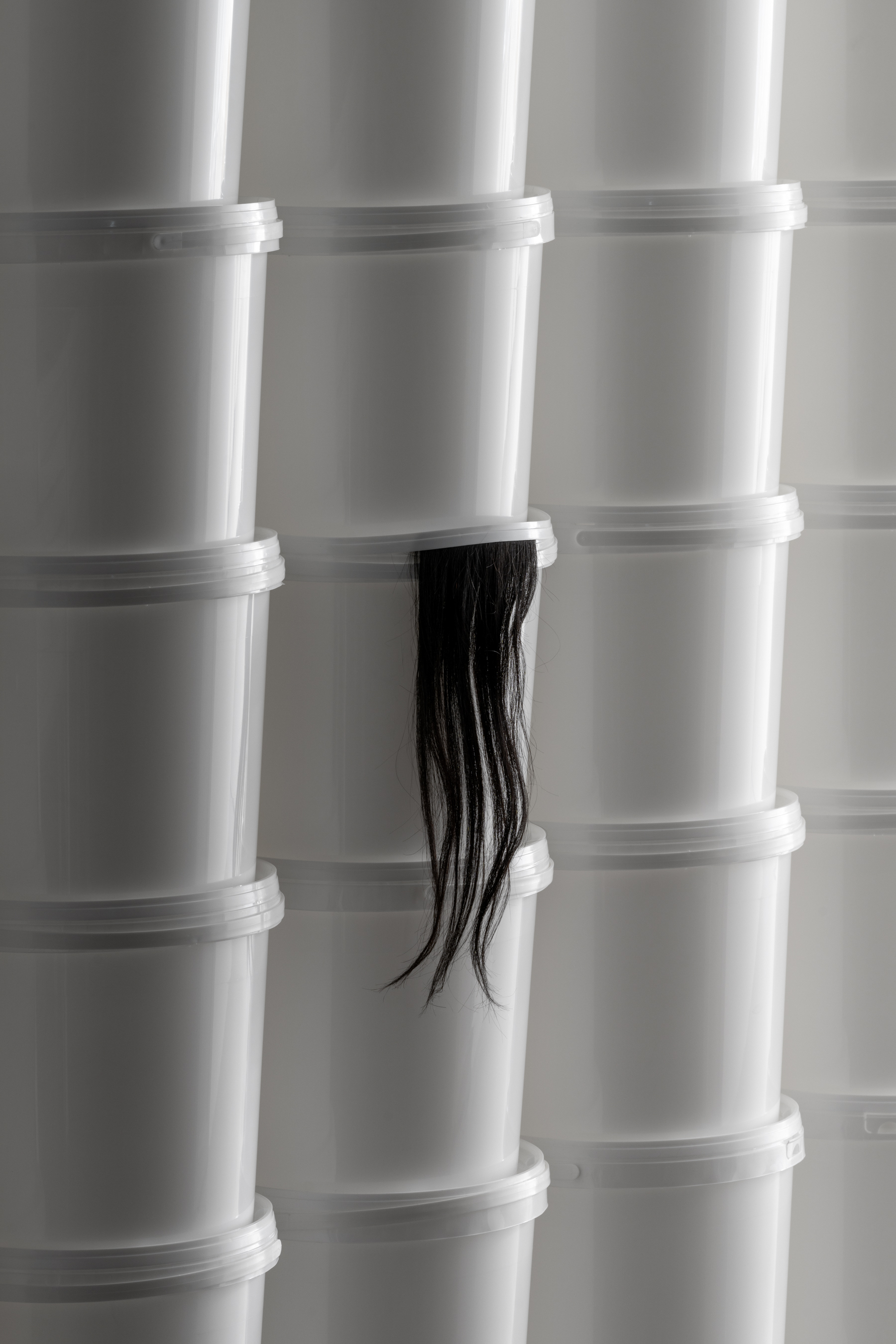
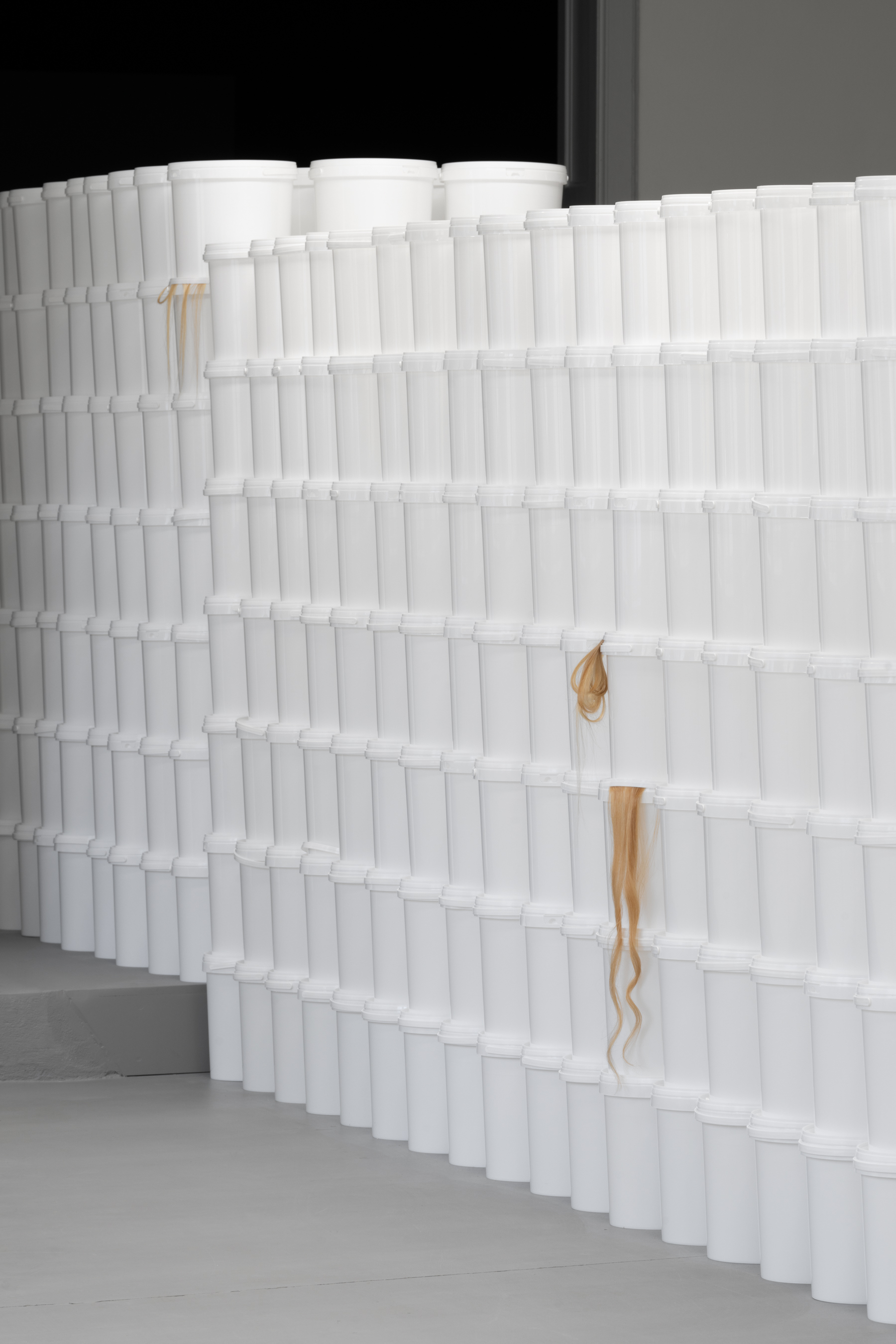
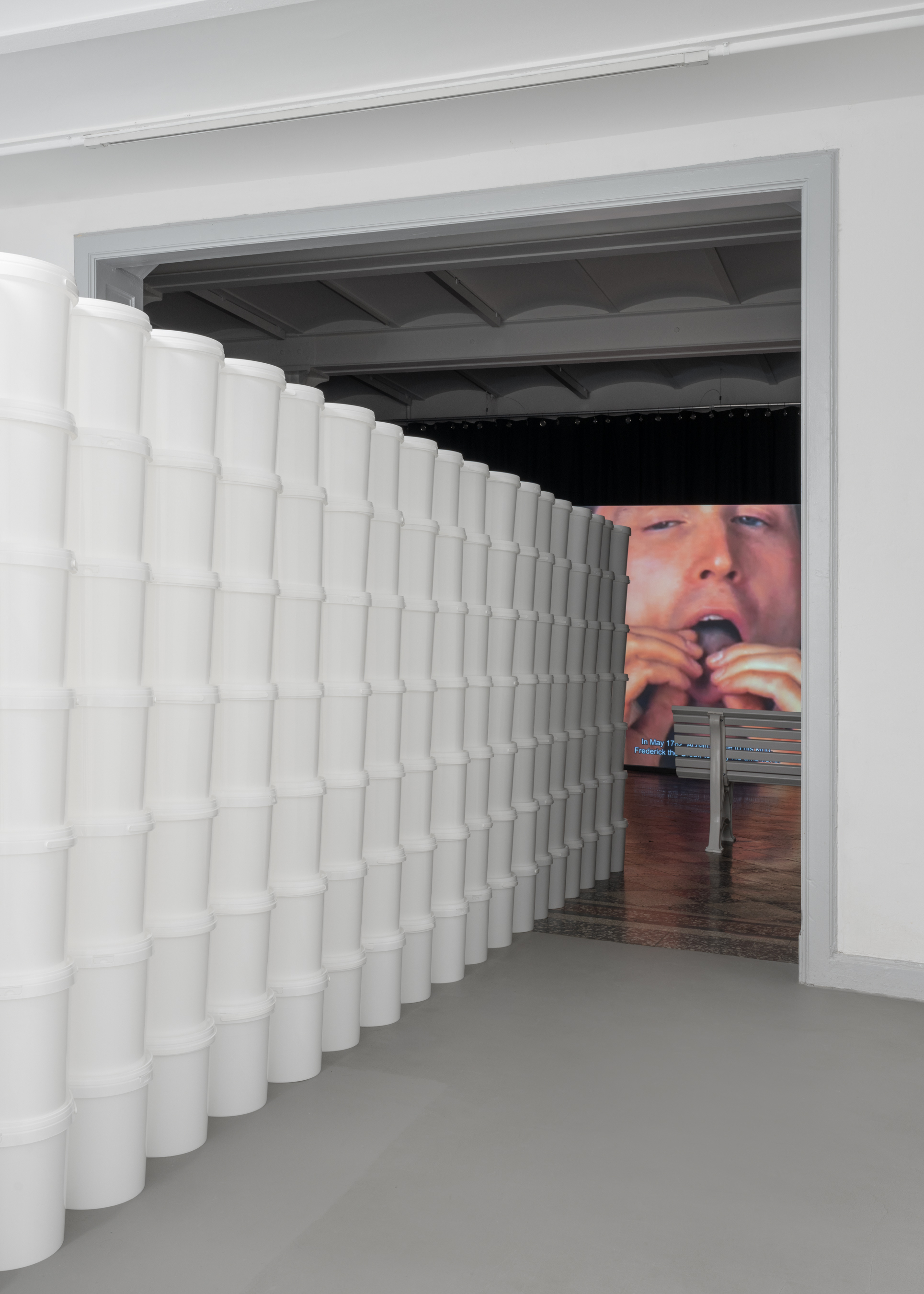
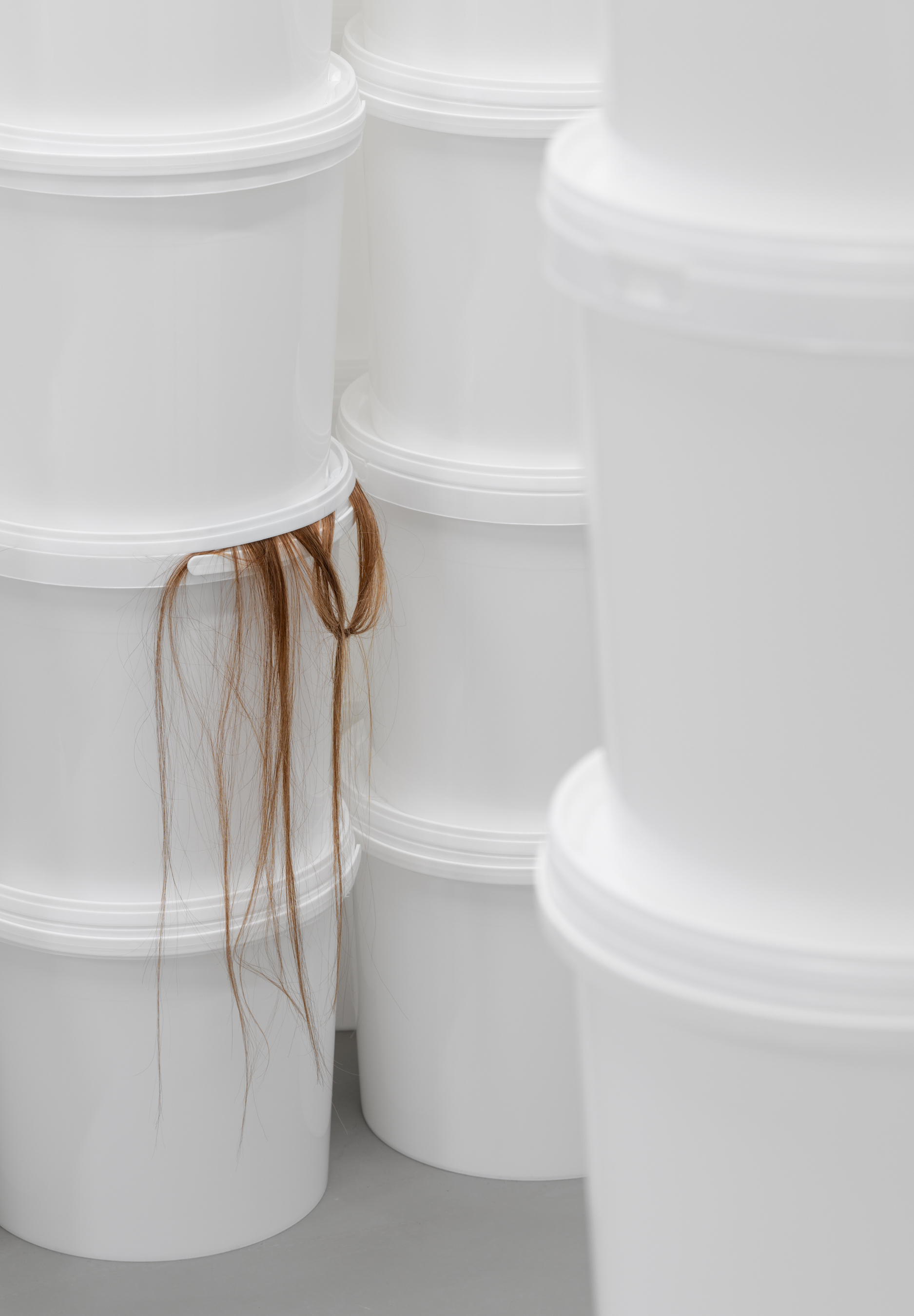
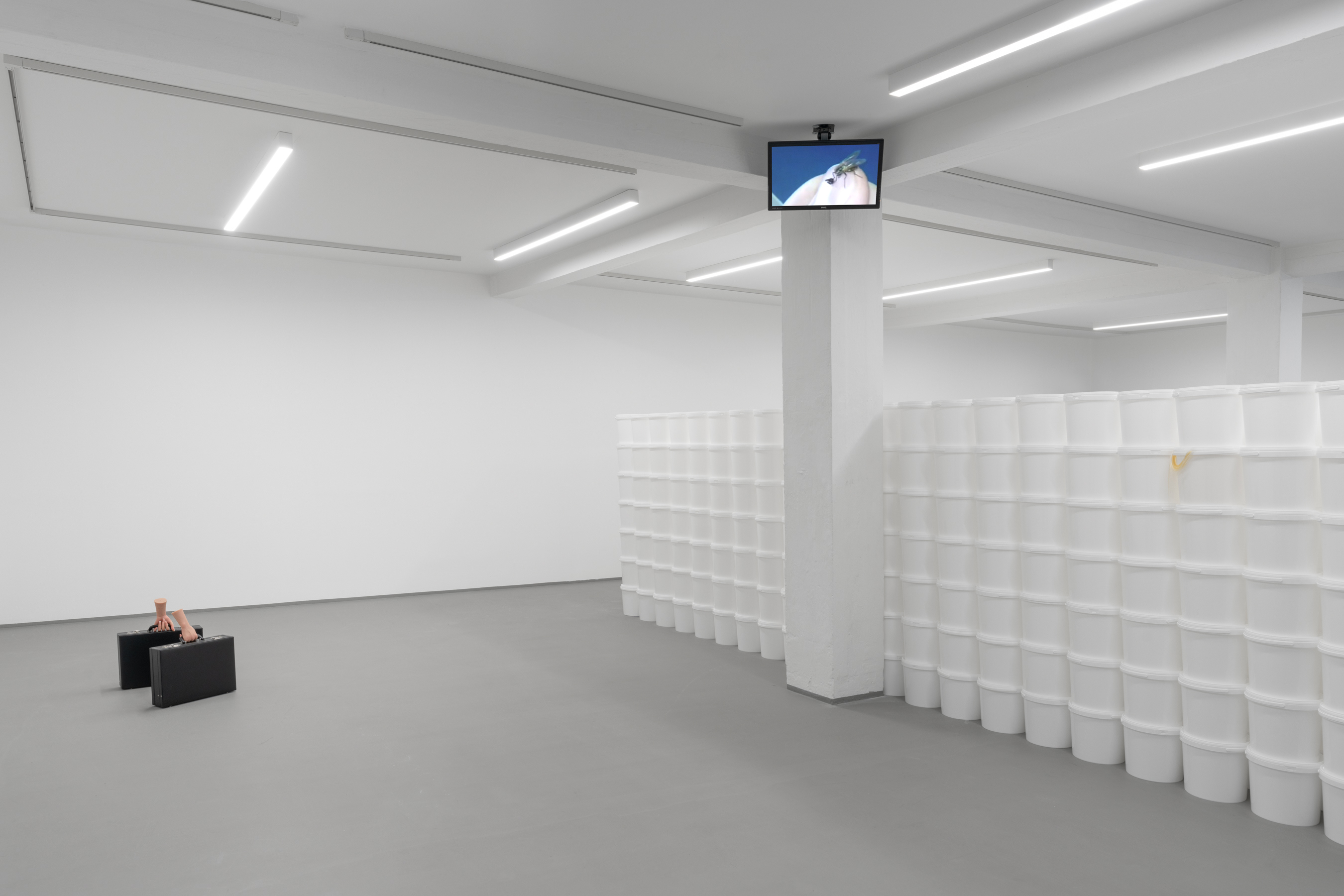
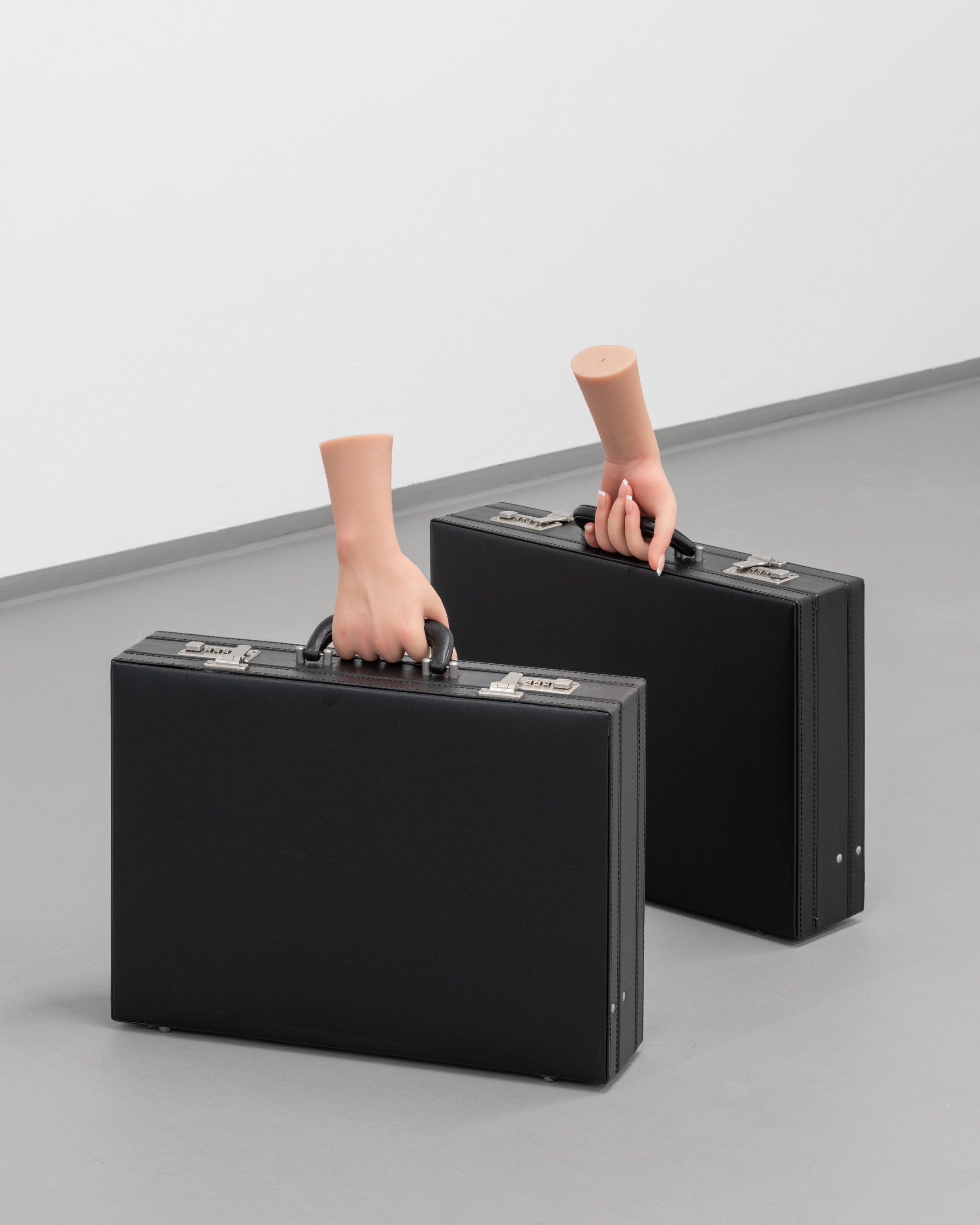
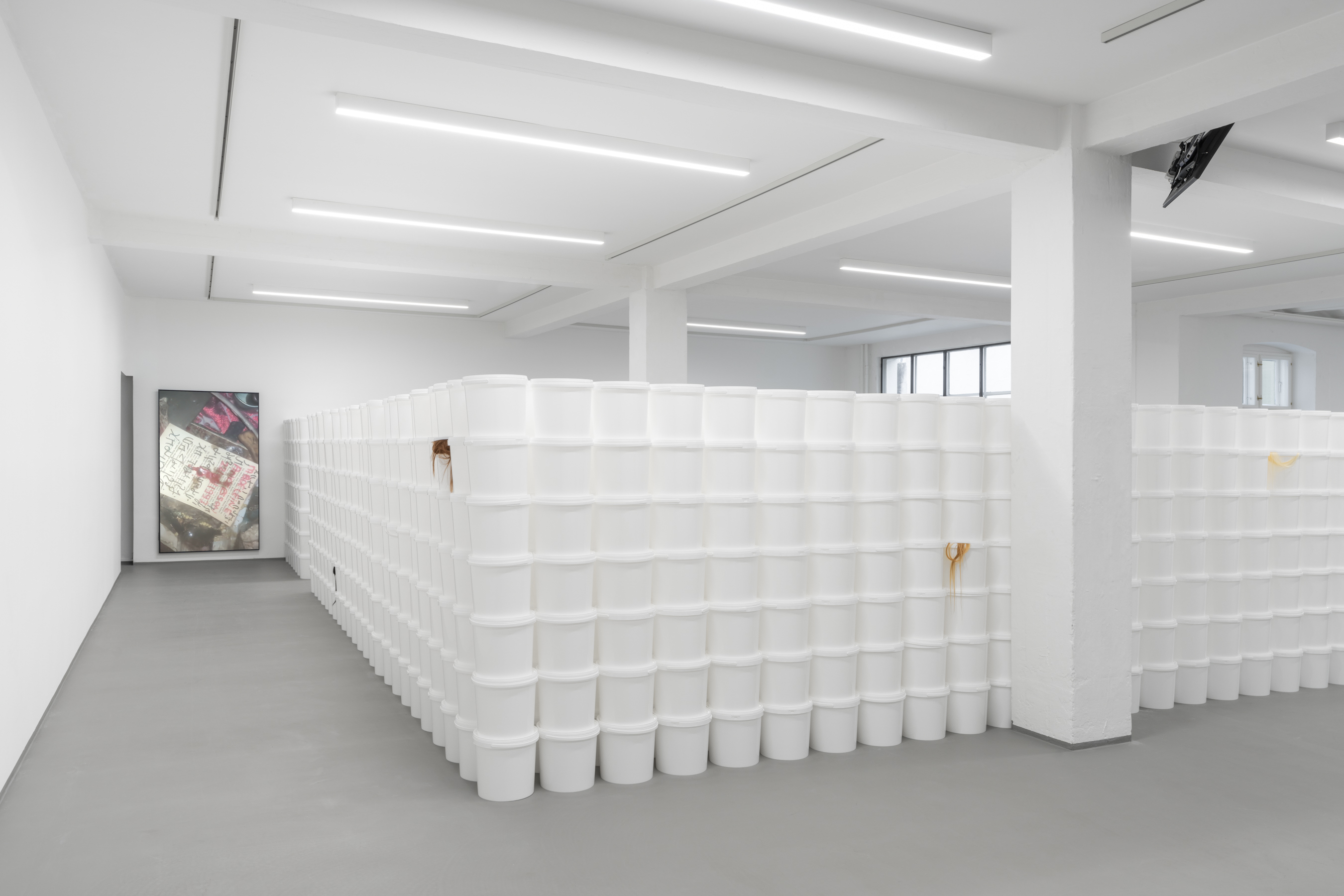
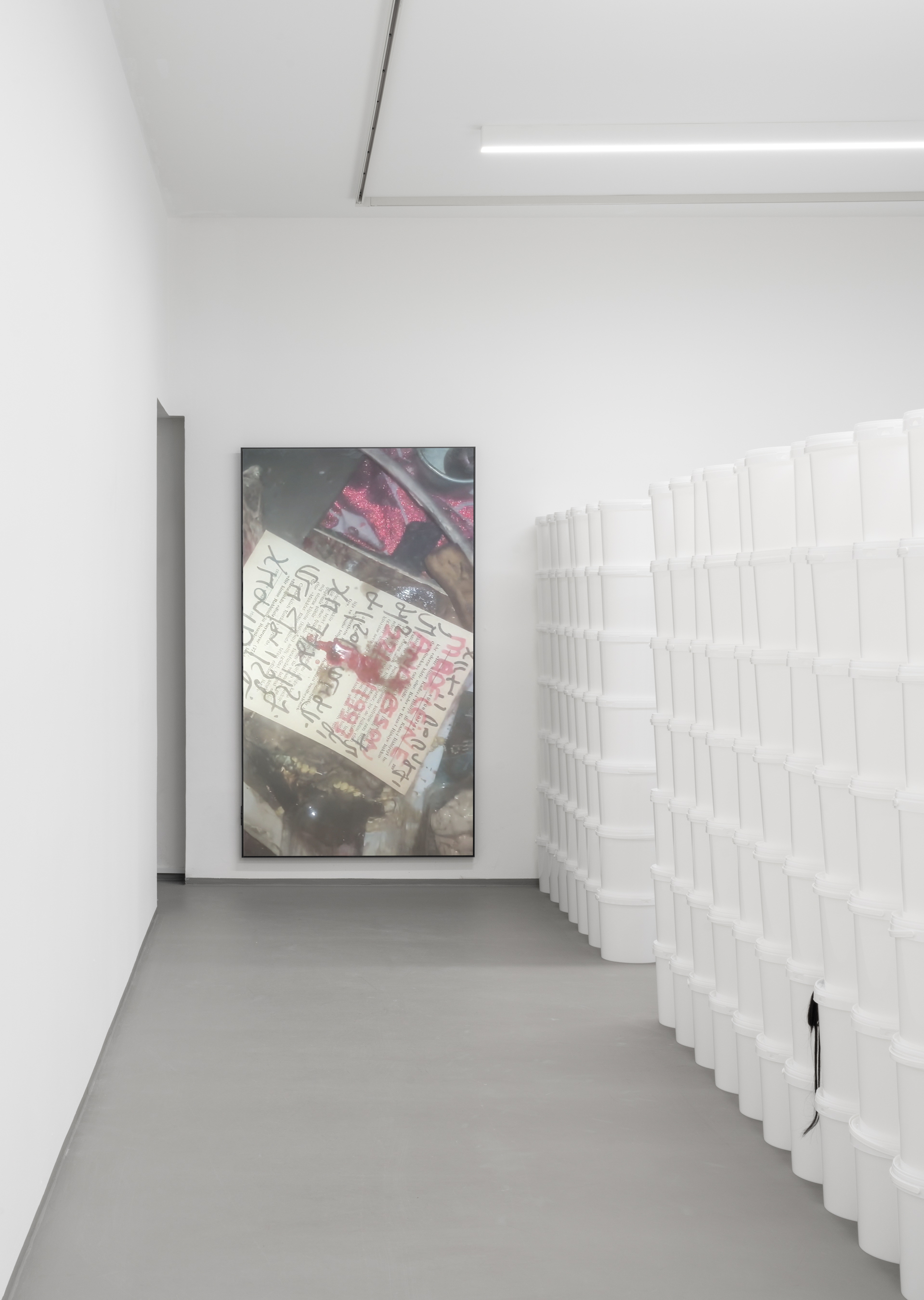
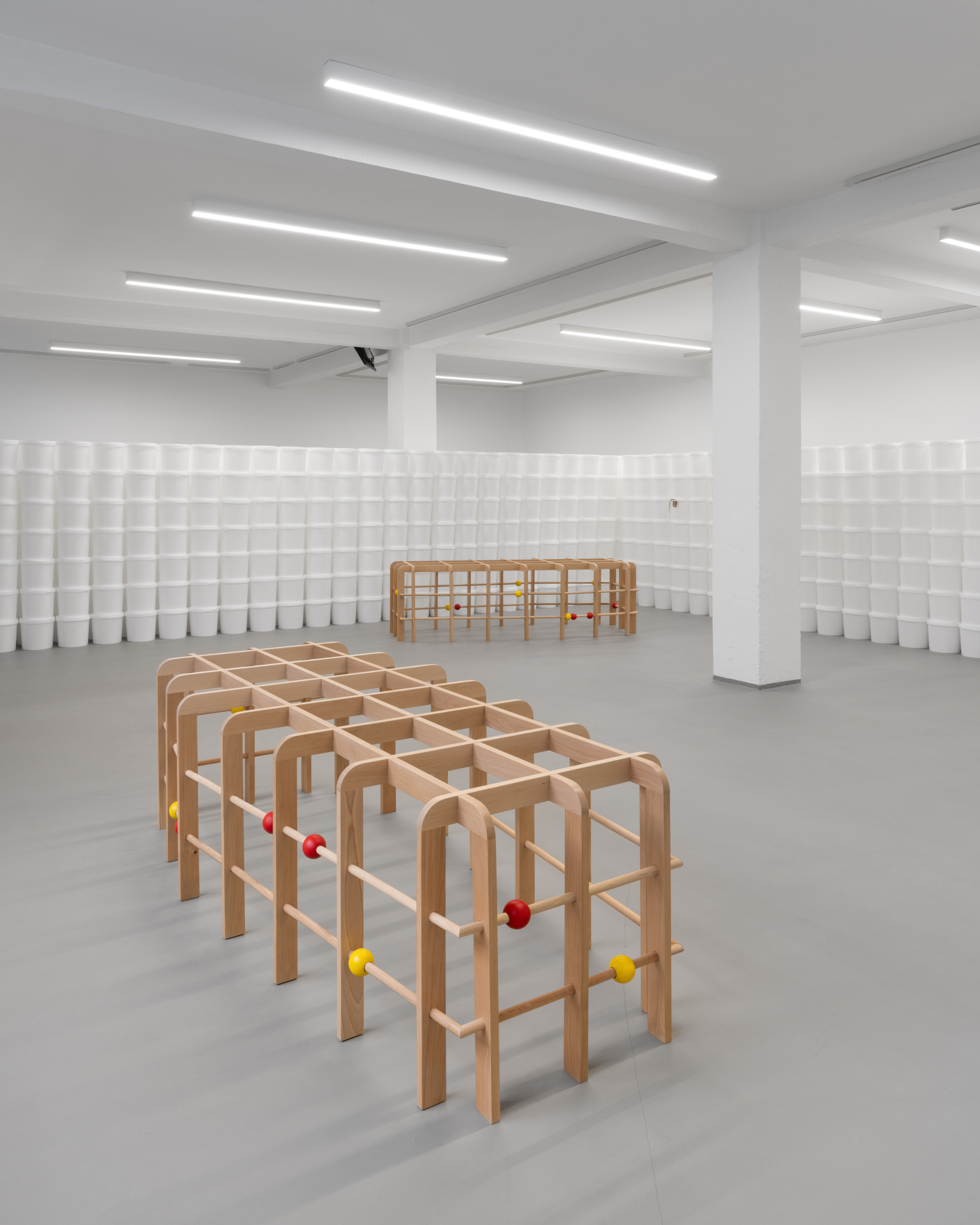
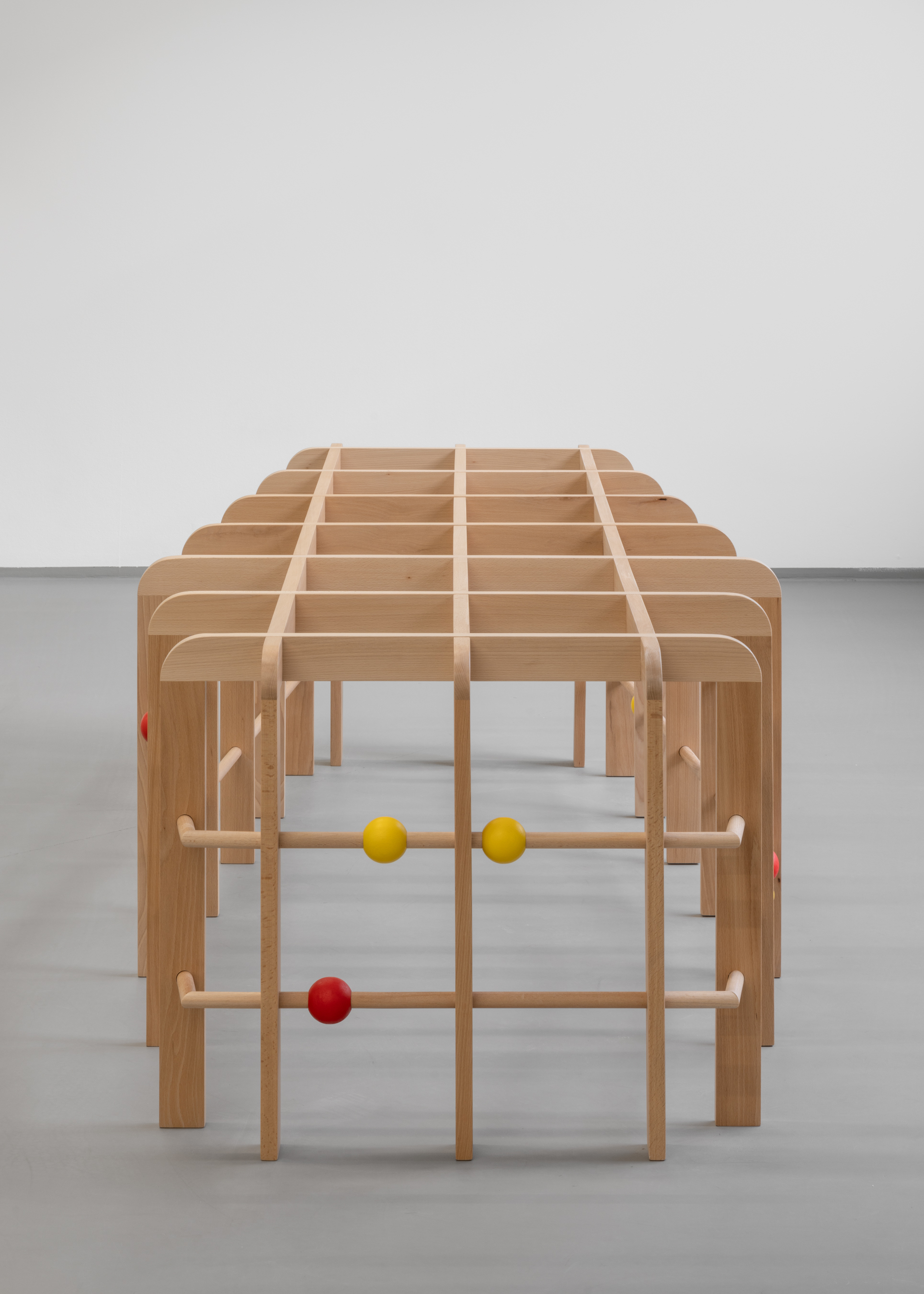
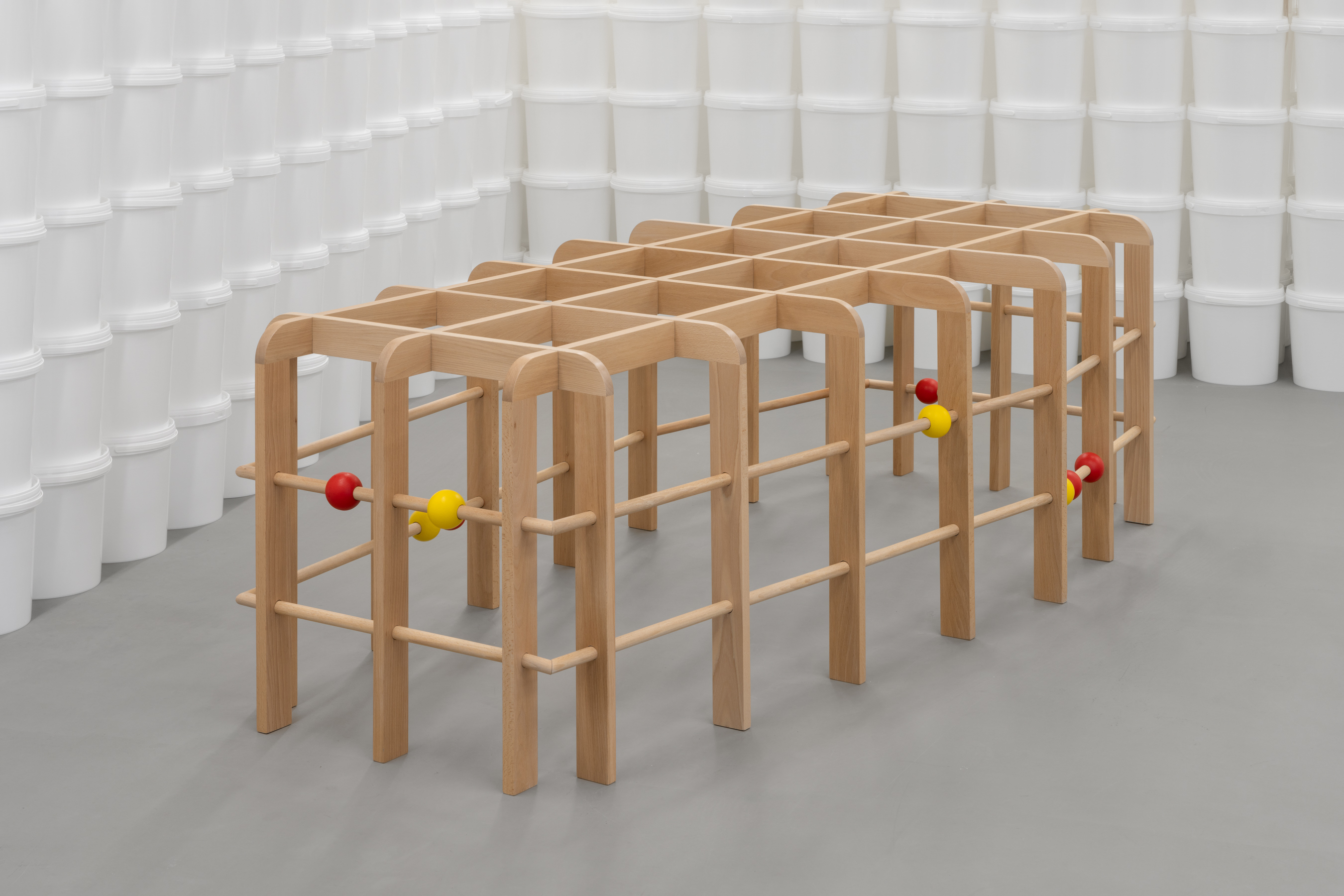
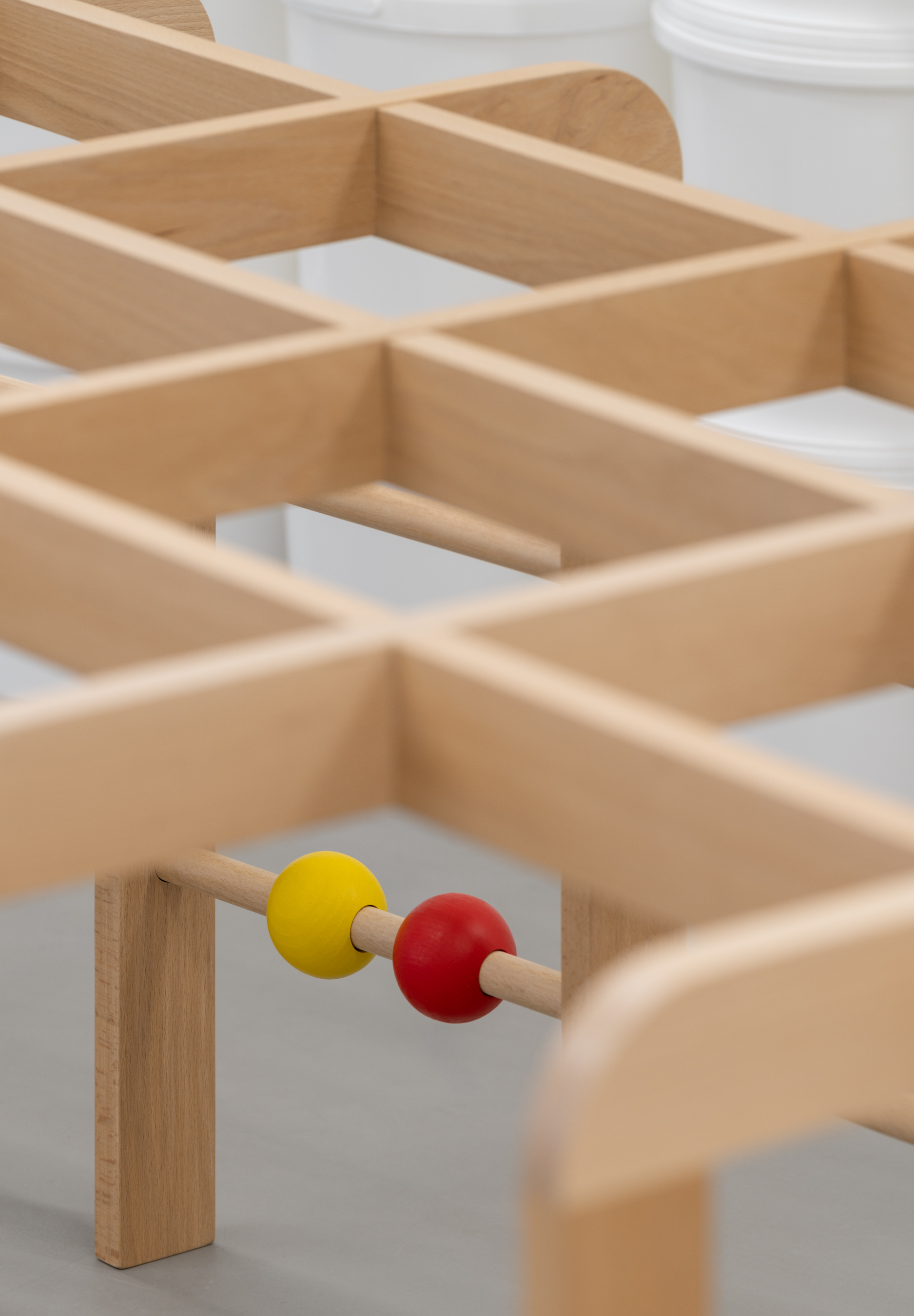
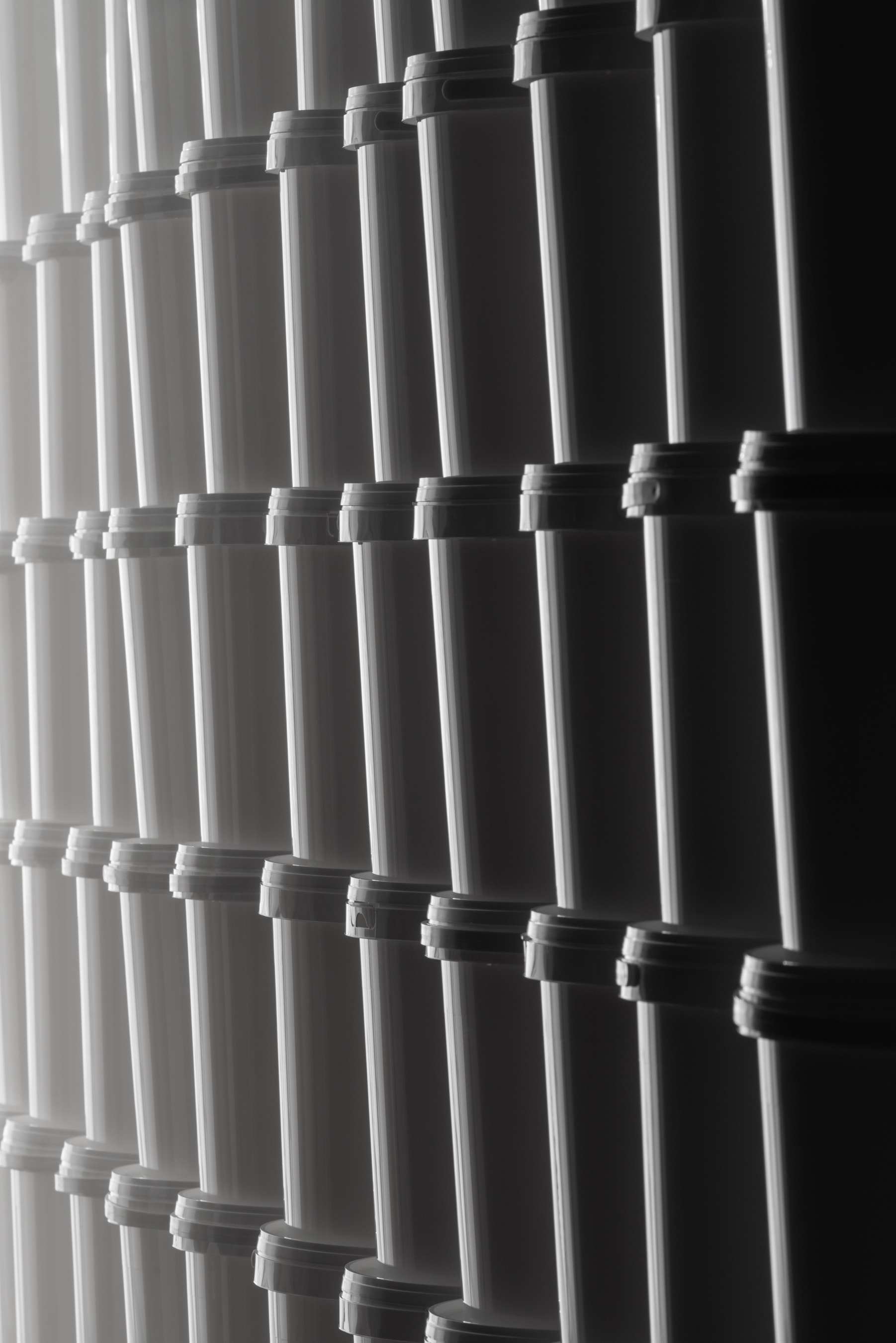
“In 2023, my mother convinced me that intelligence
is a purely random, local interaction and that the scientific
phenomenon simply does not exist.”
It is not often that artists set out to battle with the ruling
powers of intelligence, but this is nevertheless the case for
the first grand-scale solo exhibition by visual artist Madeleine
Andersson, quoted above.
For O—Overgaden, Andersson uncovers stupidity and
absurdity as inherent to the systemic, scientific
understandings of the brain and body—via a sped-up,
research-led story of moving images and sculptural gestures.
Andersson’s major new film piece,
Degenerative Knowledge
Production
, centers on electricity’s use as a metaphor and
means to optimize, control, and classify the human brain as
dumb, intelligent, or dead. The 75-minute film brews
together punkish grainy images found trawling YouTube,
popular feature films, and old documentaries. Against this
audiovisual setting, an AI voiceover recounts how the history
of electric brain experiments supports what Andersson coins
the “cogiocracy”—the hegemonic rule of both the cognitive
and cogito (thinking) or, plainly, how today’s society could be
said to be controlled not by the people’s democracy but by
rulers of the mind
: the cogiocracy.
From early 18th-century electrical experiments (notably,
German scientist Johann Wilhelm Ritter, who induced sexual
arousal by electrically wiring his genitals), Victorian
electromedicine, and 19th-century electroshock therapy,
through to today’s AI brain, Andersson paves an unorthodox
and shocking route into how electricity has been a hit-or-miss
tool in manipulating our understanding of the human mind.
A case in point: Andersson’s film reveals how scientific and
societal developments repeatedly turn out to be entirely
dependent on flat-out
stupid experiments; a trail of errors
often ignored by the typical historical accounts. If the “major history” of the systemic rule of the mind (the
cogiocracy) is told in Andersson’s feature-length film, another
film piece,
Me, ordering a mind control spell off Etsy to be cast on
myself
, results from the “minor history” of Andersson
purchasing an esoteric “personalized” video of a liberating
mind spell in defiance of (cogiocratic) “mind control”. Equally
defiant is a wall of buckets, creating an obstructive
architecture formed by 1:1-scale replicas of the plastic
containers in the world’s largest store of preserved brain
samples, a Danish collection today located at the University
of Southern Denmark (SDU) in Odense. From the wall of
buckets, odd occasional hair growth is escaping the
autopsied, archived systematization. Another absurdist
sculptural series combines the morbid shapes of 17th-century
“mortsafes”—iron structures to prevent grave robbers from
stealing corpses for use in scientific experiments—and benign
Scandinavian wood carvings used in children’s furniture.
Meanwhile a slapstick sculpture of black attaché cases held
by disembodied hands seems to testify to the disconnected
nature of modern systemic, rationalized work.
Ripping apart rational or “clever” optimization in surrealist
combinations of inherently foreign things, the exhibition jests
with the ivory tower of knowledge production and its
progression. It is an invitation to understanding intelligence
and stupidity as codependent—calling for degenerative,
erratic, humorous, flawed, creative, psychedelic, and stupid
plasticity as a part of the human tissue.
Madeleine Andersson (b. 1993, SE) is a graduate of the Royal Danish Art Academy (2022) and lives and works in Copenhagen. Andersson has previously exhibited at venues including Färgfabriken, Stockholm (2023): Bærum Kunsthal (2022); Kunsthal Charlottenborg, Copenhagen (2022); Nikolaj Kunsthal, Copenhagen (2019, 2020); Accelerator, Stockholm (2019); and S.M.A.K, Ghent (2019). The exhibition Degenerative Knowledge Production marks the culmination of Andersson’s participation in O—Overgaden’s one-year postgraduate program, INTRO, supported generously by the Louis-Hansen Foundation.
Rhea Dall
